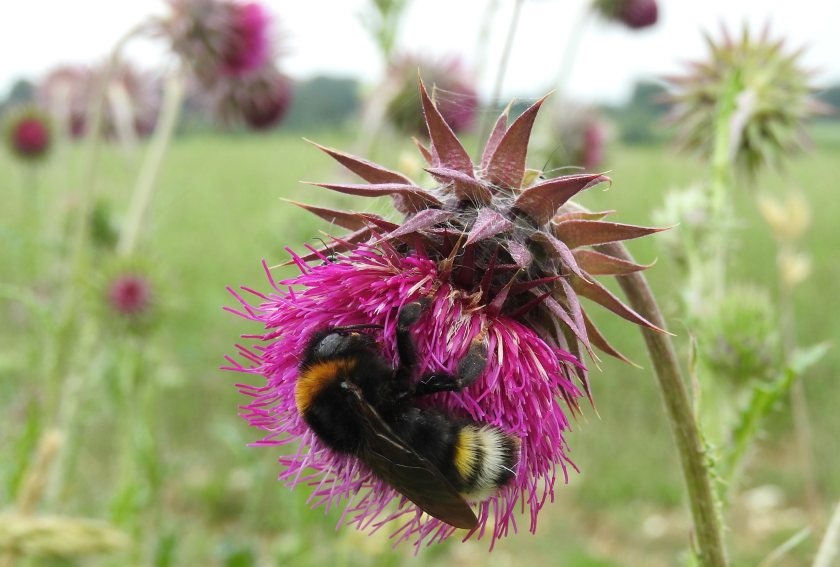
RSPB's Fair to Nature food and farming certification scheme has been expanded to cover dairy, livestock, horticultural and wine producers.
Previously only available to arable farmers, the certification standard, established in 1989, has been relaunched and expanded by the charity.
It is the only UK food and farming certification scheme with a focus on biodiversity and reversing nature loss.
Farmers make at least 10% of their farmed land, including areas difficult to farm productively, available to a range of nature habitats.
The extension is being supported with a RSPB campaign to encourage farmers to adopt the certification in the run-up to COP15, taking place on 7 December.
Mark Varney, head of Fair to Nature, said the relaunch was a "vital step in helping reverse the terrifying loss of biodiversity that is taking place".
"Over recent years in the UK we’ve seen the disappearance of half of our native farmland wildlife and witnessed the ecosystems we all depend on for our food come under threat.
"Shoppers are looking for messaging that’s easy to recognise, connect with and understand and this is only going to grow following COP15.
"Fair to Nature does exactly what it says on the label and keeps consumers coming back, safe in the knowledge that they can trust a standard guaranteed by science and certified by the RSPB.”
Certified farms receive visits from an advisor to ensure the requirements of the Fair to Nature standard are being met and to assess the quality of the habitats on the farm.
Farms are also audited against the standard by the audit provider, NSF Certification, as an external verification of compliance.
Supermarkets and retailers who support Fair to Nature can display the logo on the packaging of certified products.
